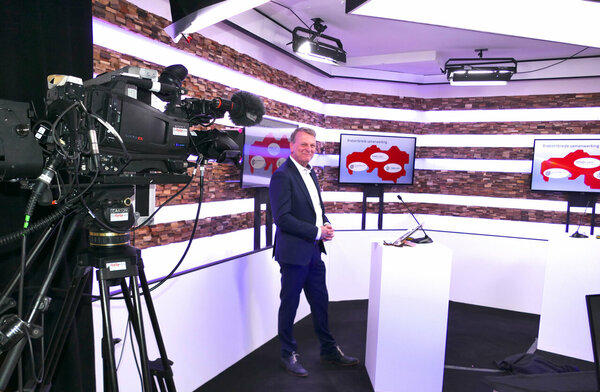Webinar shows the opportunities for AI in healthcare
With good cooperation and by sharing data, Artificial Intelligence (AI) can make a major contribution to solving healthcare problems. That is the conclusion of the webinar "AI in healthcare- use the opportunities" about artificial intelligence in healthcare that was successfully broadcasted on 26 May 2020. The webinar was an initiative of the Cooperation ‘’Slimmer Leven’’, MindLabs and Care Innovation Center; three organisations in Brabant, working together in the field of care and innovation.

In the field of AI, collaboration is essential. The Dutch AI Coalition has been operational now for six months to connect all AI activities within the Netherlands. Manager Kees van der Klauw opened the webinar and explained how AI can contribute to the challenges in healthcare. “We are increasingly relying on data and artificial intelligence to reduce costs and improve quality,” says Van der Klauw. “AI combines the knowledge of thousands of doctors and million cases. More than a human can possibly process. Computers can help with this. However, the bottleneck is, to get all that knowledge into the computer. Sharing data is extremely important. The computer will never replace a doctor but can draw a conclusion from data much faster. The doctor and computer together can form a powerful combination.”
Further development of AI will require 2.1 billion euros over the next 7 years, for which the Dutch AI Coalition has submitted a plan to the national government.
Out of the box
Max Louwerse, professor of Cognitive Psychology and AI at Tilburg University discussed the application of AI in healthcare. Many people see AI as a black box, where you do not see what is inside. Louwerse appeals to healthcare organisations to think out-of-the-box; "Make more scientists enthusiastic to find solutions to problems we have". As an example, he cited the VIBE project, which creates lifelike avatars that patients can interact with at any time of the day. "The avatar is not a doctor, but an interlocutor who refers the patient to the right healthcare provider."
Dementia
Two practical examples among people with dementia have been cited by Eveline Wouters, professor of Health Innovations and Technology of Fontys and professor of "Succesvolle technologische innovaties in de zorg” (Eng: ‘’Successful technological innovations in healthcare’’) at the Tilburg University. With applications such as door-sensors and wristbands, people with dementia have already gained more freedom of movement. Experiments are now being conducted to measure stress signals with a wristband so that others can better understand the behaviour of the demented person. "If everyone is involved in the innovations, the chances of success are much greater," says Wouters. "The technology changes the work, but the core of the profession remains."
Experiment
Martijn ten Napel, information architect of the Catharina hospital, gave an example of a failed experiment that was nevertheless very useful. The hospital investigated the use of algorithms to detect esophageal cancer. Catharina wanted to use its own terminals for this. However, this turned out to be too much of a task for the hospital alone. That is why cooperation has been sought within the Eindhoven MedTech Innovation Center (e / MTIC). “Our advice to other hospitals therefore is: experiment a lot and organise cooperation. Technical developments are continuing and as a hospital, you have to be ready for this”.
For more information, visit the websites: slimmerleven.org, mind-labs.nl and cic-westbrabant.nl